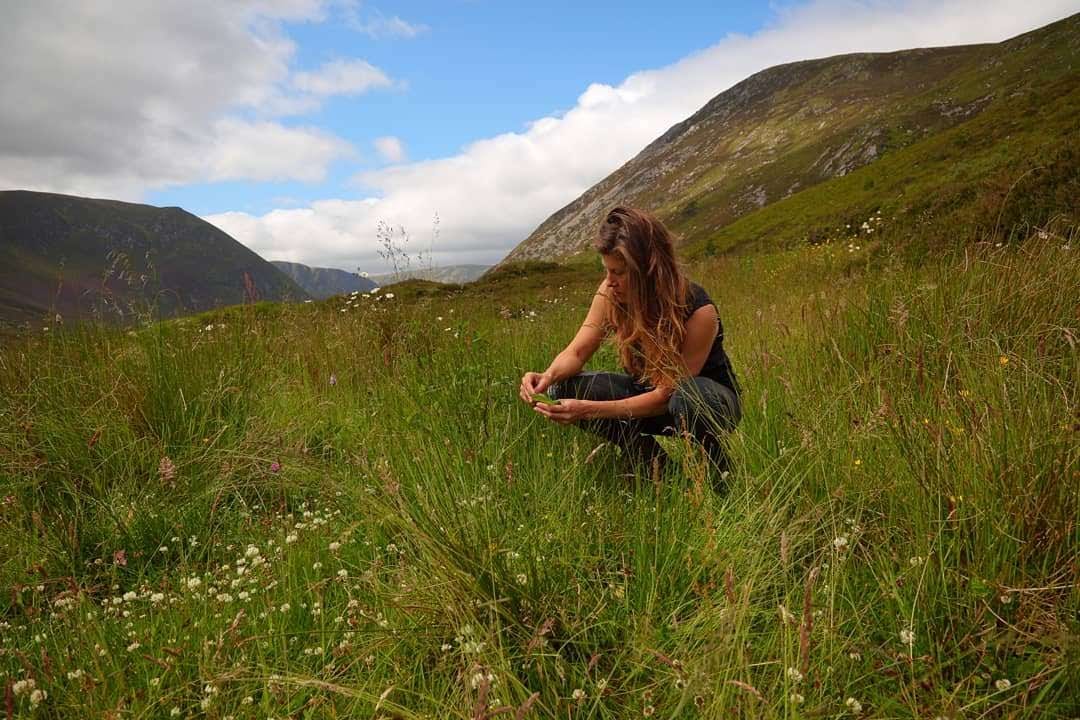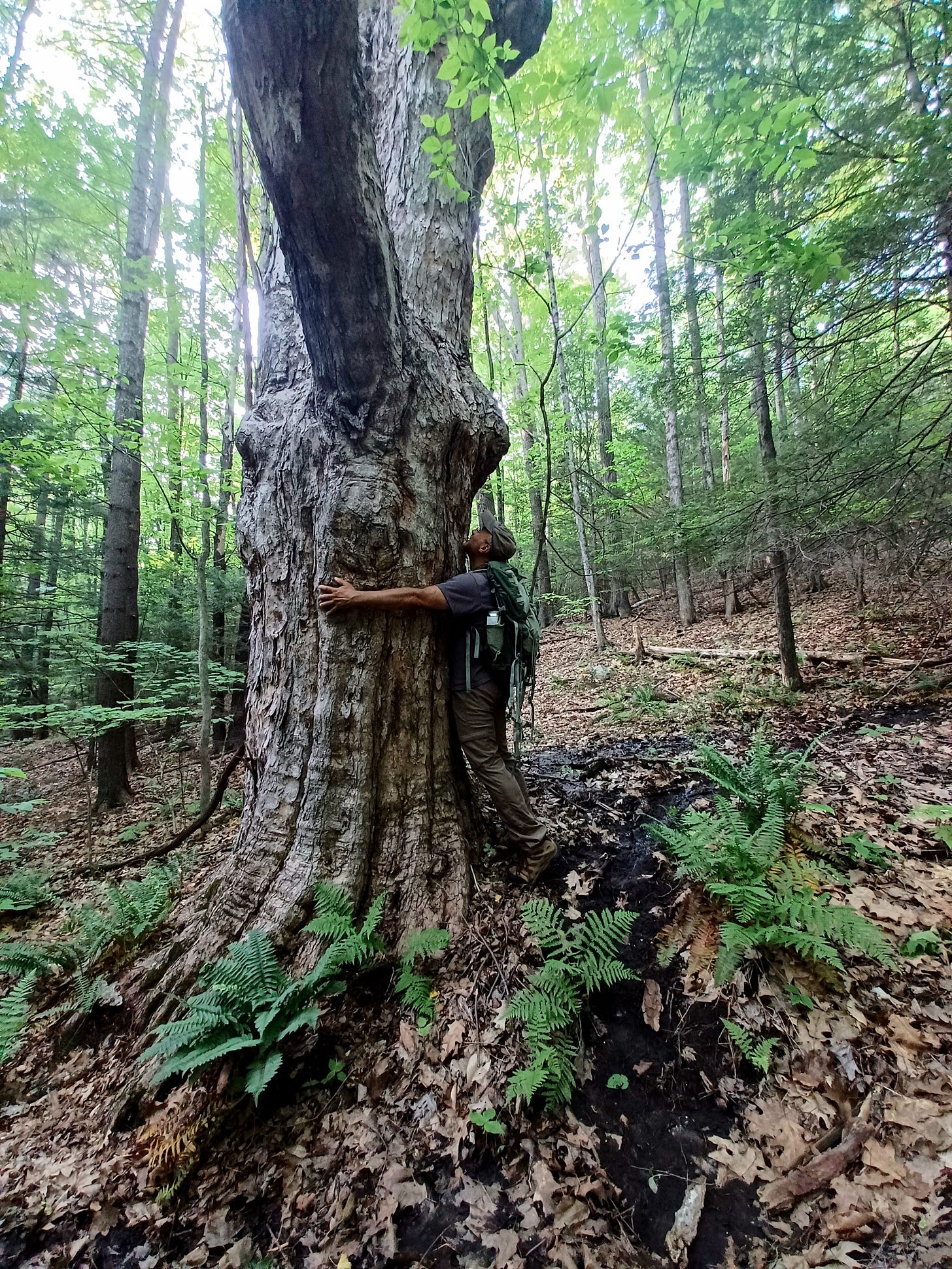Meditations on Mothering
creative expression, compassion & nurturing across species
It is 2:45 am on Mother’s Day, and I’ve been awake for almost an hour. Some of my restlessness is welcome because words are coming to me. I’m developing book chapters in my mind and finding sentences that escaped me in the busyness of days. I am awake because of inspiration, or at least to download words that express complicated ideas I’ve been gnawing on. I am grateful when writing comes to me like this. I finally gave up on sleeping and came upstairs to write.
Some sleepless nights I lay awake worried about the wild. And it’s no wonder. Every day my email inbox is populated with bad news from good people, and every day my heart breaks. So I ruminate, realizing I’ve been grinding my teeth in my dreams. I rarely get up to write when this happens but if I do it is to download my worry which helps. Usually, I just take deep breaths, trying to clear my mind until I realize I’m dreaming.
Then, every morning the birds sing.
I have always been relatively quiet with a raucous inner wild. When I was younger, ideas burned within that I wanted and needed to express but struggled to voice. Sometimes I expressed those ideas through visual art, sometimes through writing. When speaking aloud sometimes I felt silenced, sometimes I felt no one was listening, often I felt misunderstood.
So I write because I must, because it is how I attempt to know myself and my surroundings. Through writing, I express both ecological grief and love, translating a level of depth that talking alone can’t reach. My writing is also a way of speaking on behalf of birds, trees, wolves and other misunderstood animals who cannot speak (to humans) for themselves. While my words on their behalf are always imperfect, I do the best I can.
Writing, its own way, is a practice of mothering myself and others.
In her beautiful book Mother, Creature, Kin,
explores the idea of ecological mothering which she defines as “ a shared, place-based responsibility to nurture and support human and more-than-human life.”1Yes, just as Earth mothers us, we, in turn, can mother her.
Like writing, tending land is a conversation, an act of reciprocity. It reflects a natural desire to nurture and be nurtured in return. Whether a person, plant, or body of water, mothering means paying attention and understanding the needs of the beloved. And I am learning. More than anything, I am student of the land.
Whatever I call myself, I know that when I care for Mother Earth, Mother Earth has more capacity to care for me.
But of course, mothering is not an infinite well. Mother Earth has limits, just as we do, and we humans are pushing her further and further beyond those limits. Mothering is not just about nurturing. It is also about being fiercely protective of Earth and the many beings we love.
So I ask myself: How do I manage my energy, loving as much as I do?
For a long time I’ve struggled to balance the energy of giving and receiving, of doing and simply being. I want to do all I can for the wild, for friends and family that I adore, for the partner I love more and more every day. I also want to rest, to completely unplug, to move my body, take baths, lay outside in a hammock and write simply because I need to. I want to let go and receive, to let myself be mothered and to mother myself in return. Mothering doesn’t mean nuturing or protecting others at the cost of our own well-being.

When I sit under the grandmother maple tree and listen to the birds nesting in her branches, my heart feels full. I find inspiration in the tree’s rooted, interconnected strength, growing deep and wide in darkness while stretching toward the light of the sun. As the tree lives and grows, she nurtures her wild community, offering food and shelter.
This spring, I have been spending a lot of time outside planting, creating, listening and describing the sounds, sights, smells, tastes and sensations through sensory writing. Instead of being pulled into abstraction, I name what I notice and feel: damp earth deepened by bear tracks, misty spring rain touching my skin. Paying attention grounds me, it is an act of resistance against incessant noise and news cycles that can pull me into urgency, crisis, and distance. It is a practice that tethers me to place, attuning me to the creatures and beloveds who are here right now and deserve my presence and celebration.
So if ecological mothering, as Chelsea states, is “a shared, place-based responsibility to nurture and support human and more-than-human life,” then perhaps it is the physical, tangible here and now that matters most. The multi-species community we interact with and impact — for better or for worse — every day. The ecosystem we can touch, nurture and learn to mother. The living Earth that touches, nurtures and mothers us in return.
An invitation to reflect:
How do you mother yourself?
How do you mother your ecosystem?
JOIN US: I’m excited to weclome
During this webinar, we’ll have time for audience Q&A and one lucky guest will receive a signed copy of Chelsea's book.
Webinar Details:
What: Learning from other-than-human creatures about loss, love, and resilience
Date: May 20th
Time: 12:00-1:00pm PT | 3:00-4:00pm ET
Zoom: Click here to register (webinar will be recorded and made available to those who are unable to make the live event)








This is so beautiful and tender, Vanessa. Your words resonate so deeply. I love this reminder: "But of course, mothering is not an infinite well. Mother Earth has limits, just as we do, and we humans are pushing her further and further beyond those limits. Mothering is not just about nurturing. It is also about being fiercely protective of Earth and the many beings we love."
Thank you for weaving my book into your gorgeous words here. Happy Mother's Day ❤️
Hi Vanessa
Thank you so much for yr beautiful piece, every sentiment resonated with me. Is it possible to receive a link to the recording of yr webinar with Chelsea? Thanks so much. Saskia